The Adventure Begins
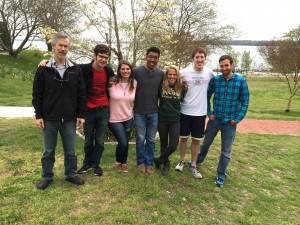
Dave Godschalk (second from the right) poses with Dr. Duffy (left) and the College of William & Mary ZEN class
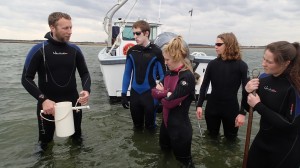
Dave (second from left) and ZEN classmates survey seagrass in the Chesapeake Bay before beginning their ZENternships
by David Godschalk (College of William & Mary undegraduate, ZENtern)
On my very first day of the ZEN Seagrass Ecology course at the College of William and Mary, I learned perhaps the most important lesson of the class, if not my scientific career. Our professor, Dr. Emmett Duffy, stood in front of our class and said these striking words:
“Things will not work out. You will mess up. Experiments will go wrong… Science is like that. The key, as an ecologist or any scientist for that matter, is to be able to adapt to those situations – to be creative and turn failures into successes. If you can do that, you will be successful not only as a scientist, but also as a person.”
As a geology major in an ecology class, this struck a chord with me. While I can go on and on about the structural and material properties that govern the Earth, different types of sandstones, and all those things near and dear to geologist’s hearts, I was out of my element in this course and I knew it. A fish out of water, one might say!
Those words on the first day are what saved me and I am so glad they did. Since then I have absolutely fallen in love with seagrass – the environment and the dynamics which govern the system. Even that particular seagrass-mud smell has grown on me. I will be writing entries for the ZEN Blog throughout the summer and one of my goals is to share with you my fascination with this unique environment. I hope to inspire you to feel the same way I do about this precious habitat and unprecedented project.
The Zostera Experimental Network (ZEN) is a collaborative, global study to examine what affects seagrass, and what role in turn seagrass play in coastal environments. What makes this project so unique is: (1) standardized experiments are performed worldwide, when often experiments in science can only be performed locally or regionally, and (2) undergraduate students (like me!) are sent to these global sites to practice and hone skills learned in class and contribute to the overall scientific study.
This summer I will be contributing to the ZEN research efforts in Zadar, Croatia, located across from Italy on the Adriatic Sea. It is a beautiful place and I am unbelievably excited to get things underway here. I will update you soon on how the experiments are going!
Dave is a graduating senior at the College of William & Mary and will be working with Dr. Claudia Kruschel in Croatia. His major is in geology with a marine science minor. Prior to studying seagrass ecology, Dave worked for Dr. Mark Patterson at the Virginia Institute of Marine Science on autonomous underwater vehicles (AUV) and completed an honors geology thesis. His favorite class at WM was structural geology – and rock climbing. When not snorkeling in the seagrass beds or surveying rocks he can be found running marathons.
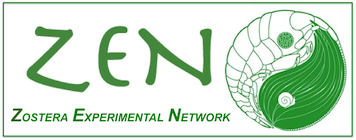
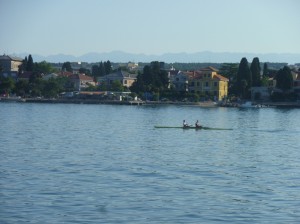
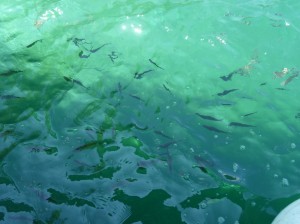
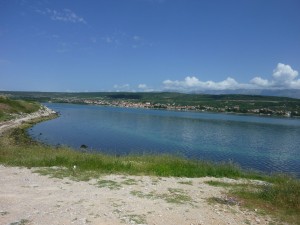
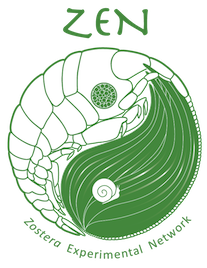
Comments are closed.